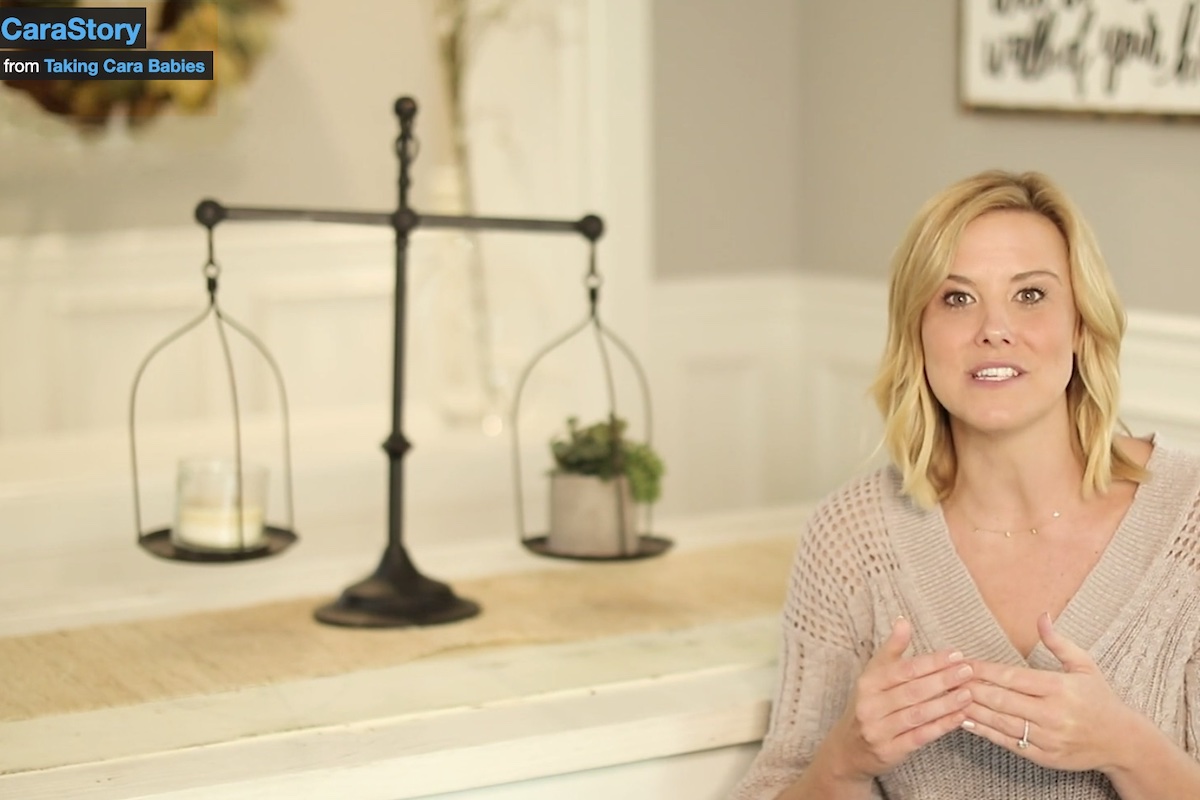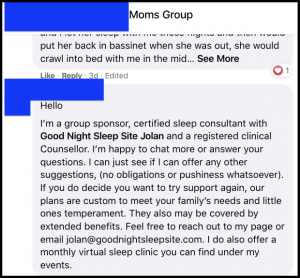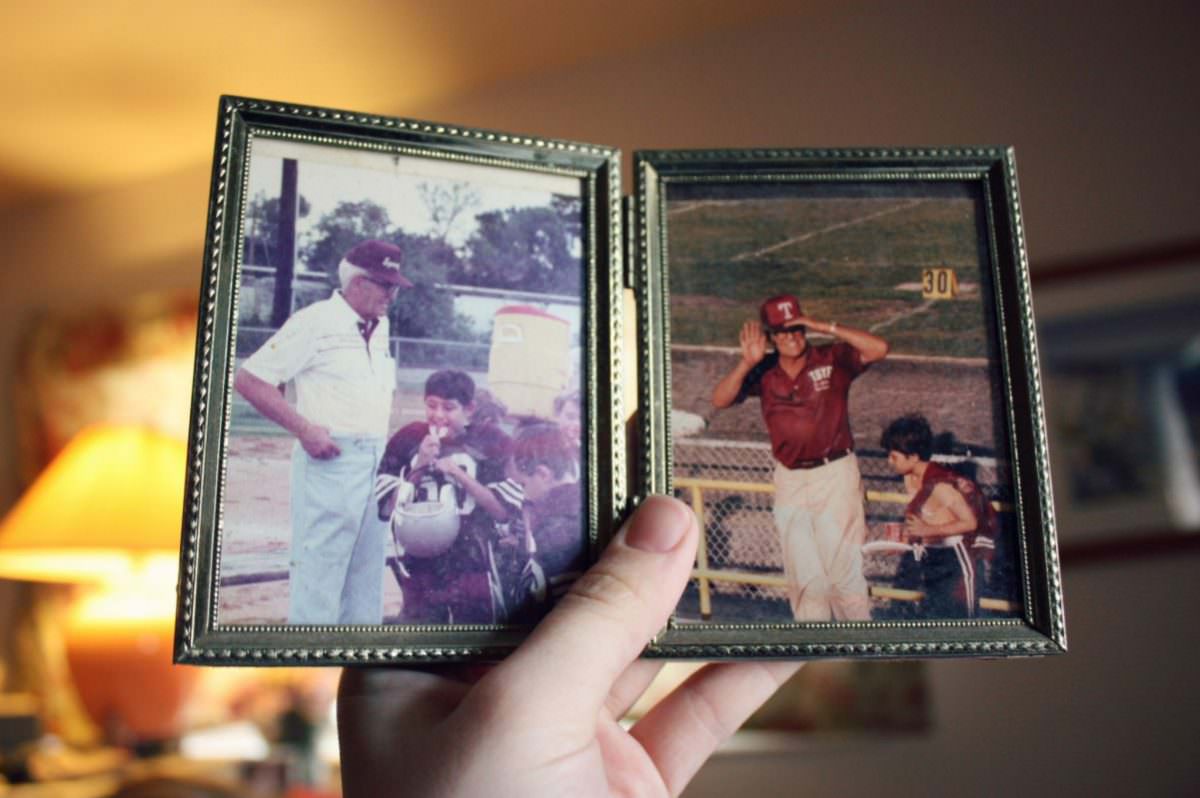Family
‘Taking Cara’ Business: A New Mom’s Anxious Glimpse Into the World of Baby-Sleep Consultants
Being a new mom who wanted the best for my child, I felt anxious about having fallen into what I was told was suboptimal behaviour.

Like most new parents, I spend a lot of time stressing over my child’s sleeping habits, fighting to get her down for naps, and dragging myself out of bed in the wee hours to deal with overnight wake-ups. Even before I’d left the hospital, my relationship with my daughter’s sleep patterns had become a big part of my life.
My daughter was born jaundiced. And I was told by my midwife to keep her awake at the breast, as jaundiced babies are prone to dozing off when feeding (and, therefore, may not take the full feeds needed to get healthy). As a first-time mom, the experience of nursing my baby to sleep was new, and my love for my child was mingled with awe at my body’s natural ability to soothe my daughter.
Once the jaundice was behind us, and my husband and I no longer had to keep her awake during feeding, new sleep struggles emerged. My daughter would only nap when I held her, resisting all attempts by my husband to rock or bounce her. She also hated pacifiers, and so we couldn’t rely on leaving one in her crib so that she could soothe herself to sleep when she was tired. I exclusively breastfeed, and during the long period of recovery that followed my daughter’s birth, I’d taken to nursing her to sleep as a way to soothe and bond with my child while lying in bed.

Like so many others, I took to Google for advice—inquiries that opened my eyes to the surprisingly expansive online world of baby-sleep “consultants.” While I spent hours reading what they had to say, I sensed that some of these online businesses were offering dubious advice. Women introducing themselves as “certified sleep consultants” always seemed to strategically slide into comment sections, pitching their services and linking to polished-looking websites, blogs, and social-media pages. For just $6,500, I learned, anyone can set themselves up as a consultant.
One consultant stood out as especially prominent, as her courses were the subject of endless discussion by fellow moms in the social-media groups I frequented. Cara Dumaplin of the cleverly named Taking Cara Babies (aka “TCB”) is an Arizona-based neonatal nurse with over a million followers on Instagram. In recent years, this celebrity of the infant-sleep world has been featured in Huffington Post, People, and Parents magazine, and appeared on Good Morning America. In addition to offering taped classes, she also offers one-on-one phone consultations, all with the aim of “teaching parents how to help their babies sleep with the science of a nurse and the heart of a mama so they can reclaim the joy of parenthood.” Her ABCs of Sleep course, “an online class for parents of babies 5–24 months old who struggle with sleep,” starts at $179.
One common theme promoted by TCB and other consultants, which initially caused me to second-guess the strategy I’d adopted for putting my own daughter to sleep, was the idea of following an “eat-play-sleep” schedule. Typically, this means that after your baby wakes up in the morning or from a nap, you should first feed them, then engage them in play, and then wind them down for more sleep. Another common theme was that putting one’s baby into his or her crib in a “drowsy but awake” state is an optimal means to establish independent sleep, and prevent “negative sleep associations” or reliance on “crutches,” such as being nursed or rocked.

Being a new mom who wanted the best for my child, I felt anxious about having fallen into what I was told was suboptimal behaviour. What I was doing felt natural and instinctual. But it nagged on my conscience that I might be reinforcing bad habits—habits, I worried, that could mar my child’s sleep patterns for years.
In online parenting groups, I read countless posts from other moms echoing my own anxieties. Many of these parents said they’d purchased TCB’s and other sleep consultants’ courses and eBooks as correctives. We also comprised a target-rich environment for those selling the plethora of baby sleep aids on the market—including special swaddles, sleep sacks, noise machines, and high-tech bassinets.
In a recent post titled “Why isn’t my baby sleeping through the night?,” TCB outlines 10 common sources of infant sleep trouble, along with a brief explanation of how to troubleshoot each one. “You may have read that a 5–7 hour stretch of sleep is ‘sleeping through the night,’” she wrote. “[But] while that is a developmentally appropriate and even amazing stretch of sleep at some ages, that’s not my definition of a full night of rest! When I refer to ‘sleeping through the night,’ I’m referring to 10–12 hours of sleep with no need for parental intervention! (This may… include a feeding for some babies until 5–9 months.)” To an exhausted parent who’s become resigned to getting up every few hours, and has gone weeks or months without being able to relax intimately with their spouse, that’s a tantalizing prospect.
And for many parents, I’m sure, that prospect (or something close to it) really has become a reality. Even if 10–12 hours of uninterrupted sleep is an aspirational figure for most, TCB clearly has helped thousands of parents. But now that the months have passed, I’ve attained a sense of perspective on my own motherhood anxieties, and the way that the market plays on them. And I’ve come to find it unsettling to observe how sleep consultants profit by instilling self-doubt in parents who follow their natural instinct to rock and nurse their babies to sleep. These actions are biologically rooted—which is why babies respond to them—and have been performed by mothers for millennia.

The sucking action from a baby during nursing releases the hormone cholecystokinin in mother and child, which makes the baby feel sleepy. Breastmilk also contains other sleep-inducing hormones, whose concentrations tends to be highest at night-time, which in turn helps babies to establish their circadian rhythms. Nursing to sleep also provides babies with comfort and enhances developmental outcomes. Even as adults, we all have props and rituals that calm us down so we can fall asleep—a favourite pillow, a cozy duvet, a spouse or pet snuggled up beside us in bed.
Moreover, waking at night for feeds and comfort is accepted by experts as perfectly normal infant sleep behaviour, highlighting how the marketing points of TCB and other consultants are not necessarily in alignment with biological norms (particularly with regard to “sleeping through the night”). Night wakings are especially common for breastfed babies, because breastmilk is more easily digested than formula, and can increase in number when babies are working on new skills such as rolling over or crawling, and are too distracted during the day to take fuller feeds.
This is why I have mixed feelings about what happened to Cara Dumaplin in the days leading up to the inauguration of US President Joe Biden. Members of online parenting groups took to subreddits, Facebook mom groups, and the comments on TCB’s Instagram to criticize her—not because of anything she’d written about child care, but because of revelations that she’d donated to Donald Trump’s failed presidential re-election campaign.

In a sleep-training sub-reddit, a post titled TCB for Trump features hundreds of Redditors dogpiling on Cara, with such barbs as “Yuck. Clearly, she isn’t taking cara the babies separated from their moms at the border,” and “My baby is having trouble sleeping because she’s upset about the erosion of truth and democracy. [S]hould I continue rocking her or put her down angry but awake?” Some Redditors uploaded the content from her paid courses to file-sharing sites in an effort to crash her income streams.
No, TCB hasn’t been “canceled,” as some wish, as there are plenty of moms who aren’t on Reddit and don’t care about her politics anyway. But she has restricted comments on Instagram, and clearly her darling status within the community now seems to have come into question. In fact, the whole industry may come under greater scrutiny now that its biggest celebrity has run afoul of the Internet’s virtue monitors.
On one hand, such scrutiny would be welcome, especially if it causes desperate, sleep-deprived parents to think twice before hiring consultants who exploit their second-guessing of natural mothering practices. But smearing people simply because they supported the “wrong” political party is the wrong starting point. The tenor of the online discussion suggests that TCB would be just fine in progressive circles if she’d continued making a fortune off anxious mothers, but had simply given a portion of her profits to Biden instead of Trump. As I see it, we should be paying more attention to how TCB makes her money than what she chooses to do with it.
“If you are feeling overwhelmed and confused by any advice—whoever is dishing it out—put on your bullshit filter,” says breastfeeding expert and author Pinky McKay. That’s sage advice, given the deluge of parenting information found online. Never forget that the baby-sleep industry is, like every other industry, a business first, and a support arm for exhausted parents second.






